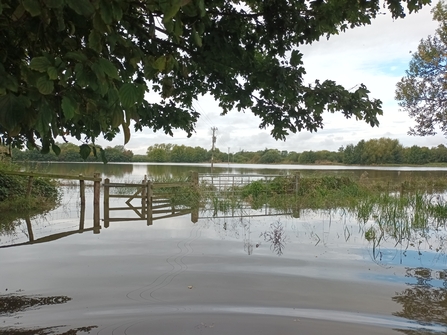Today, The Wildlife Trusts publish their new assessment of the effects of climate change on nature across the UK. The report, Resilient Nature, shows how much-loved species and habitats are faring across The Wildlife Trusts’ 2,600 nature reserves in response to the changing climate and extreme weather over the past year.
Whilst summer’s headlines were dominated by heatwaves and drought, the report reveals that over the past 12 months it has been extreme changes in weather patterns that have been the most damaging overall, with the natural world bearing much of the brunt.
Key findings include:
- Drought and heat extremes have caused important wildlife habitats, such as peat bogs and heathlands, to dry out on Wildlife Trust nature reserves. Low water levels in ponds, streams and rivers have also affected swifts, dragonflies and amphibians.
- High wildfire risk has imperilled precious landscapes, including Upton Heath in Dorset where nature reserve staff were devastated to find charred birds’ nests among the fire debris in April.
- Unpredictable weather has led to disruptive storm events, with natural habitats unable to absorb sudden, vast amounts of rainfall. When two months’ worth of rain fell in just a few days, multiple Wildlife Trust nature reserves were flooded.

